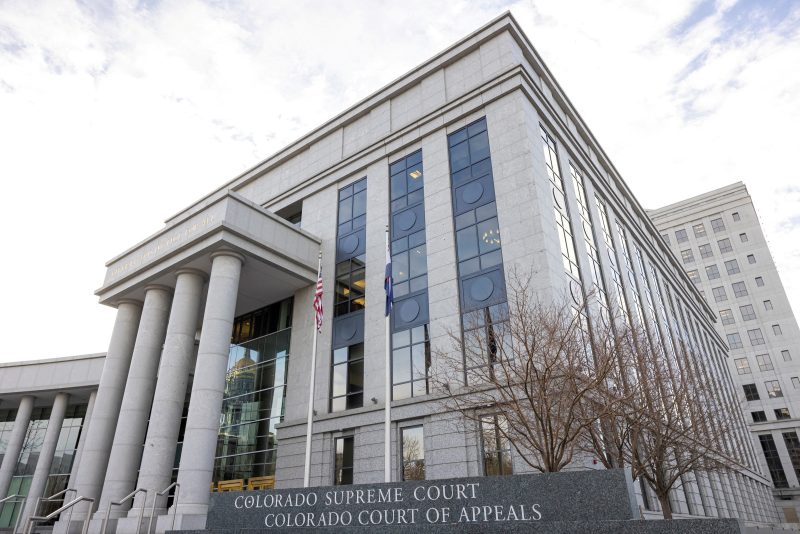
Law enforcement investigating threats to Colorado justices after Trump ruling

Local and federal law enforcement officials say they are investigating a surge in threats that justices on Colorado’s Supreme Court are facing after their decision this week to bar Donald Trump from running in the state’s presidential primary.
In a 4 to 3 decision Tuesday, the court ruled that Trump should be kept off the ballot because he engaged in an insurrection at the U.S. Capitol on Jan. 6, 2021, violating the part of the U.S. Constitution that prohibits insurrectionists from holding high office.
After the ruling, law enforcement say they’ve become aware of telephone and social media threats to the justices who ruled to bar Trump from the ballot.
“The FBI is aware of the situation and working with local law enforcement,” Vikki Migoya, a public affairs officer for the FBI’s Denver field office, said in a statement. “We will vigorously pursue investigations of any threat or use of violence committed by someone who uses extremist views to justify their actions regardless of motivation.”
Police also went to a justice’s residence Thursday evening in what appears to have been a “hoax report,” the Denver Police Department said in a statement Friday. Everything was found to be normal at the residence, and an investigation into the incident is underway, they added.
The Colorado Judicial Department declined to comment on security matters, and the Colorado State Patrol, which is responsible for protecting state officials while they are in state buildings, said in a statement that it would assist with investigations as necessary.
Since Tuesday’s decision by the court, social media and forum posts on several platforms have shown users expressing violent, racist, homophobic and sometimes threatening language targeting the Democrat-appointed judges who ruled in favor of removing Trump from the ballot. The comments have ranged from peaceful protest to calls for executions.
In a statement after Tuesday’s ruling, Trump campaign spokesman Steven Cheung called the decision “completely flawed” and attacked the “all-Democrat appointed Colorado Supreme Court,” claiming it was participating in election interference.
A Trump campaign official did not respond to a request for comment.
Peter Simi, a Chapman University sociologist who has studied far-right extremism, served as an expert witness in the trial that considered Trump’s ballot eligibility in Colorado this fall. He told The Post that he’s seen an increase in threatening rhetoric from apparent Trump supporters in response to the court’s decision, including “strong accusatory language and calls to have [the judges] arrested.”
“It’s critical we take these very seriously, first, as a public-safety issue and, second, as a threat to democracy,” he added. “I also think we need to look at the most recent threats to the Colorado Supreme Court justices within the context of the much longer pattern of Trump and his supporters promoting political violence.”
Simi said that immediately after his testimony in Colorado this fall, he also observed what he referred to as “indirect death threats” online and received a number of “aggressive” voice mails and emails. The messages referred to him in derogatory terms and called for his arrest. There also were demands to have Chapman University fire him.
The Colorado decision is expected to be appealed to the U.S. Supreme Court, but it will be up to the justices to decide whether to take the case.
Several other states are considering similar cases about Trump’s eligibility to be on the ballot. If other states reach the same conclusion as Colorado, Trump would find it difficult — if not impossible — to secure the Republican nomination and win in November.
Asked Thursday about the escalation in violent rhetoric toward the justices, White House press secretary Karine Jean-Pierre said, “Any intimidation, any violent rhetoric or violence — we’re certainly going to denounce that and say it is inappropriate.”
Amy B Wang, Patrick Marley and Azi Paybarah contributed to this report.
